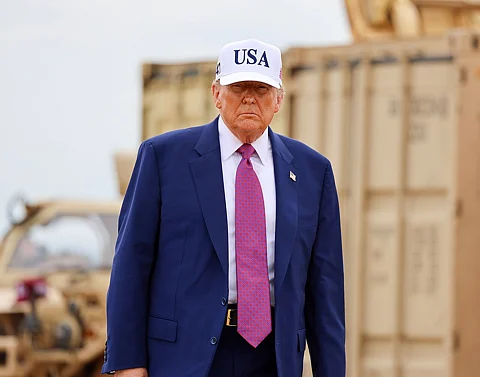

President Donald Trump on Sunday directed federal immigration officials to prioritize mass deportations in Democratic-led cities, escalating his administration’s hardline stance on immigration amid growing public backlash.
In a post on his social media platform, Truth Social, Trump called on Immigration and Customs Enforcement (ICE) to "do all in [its] power to achieve the very important goal of delivering the single largest Mass Deportation Program in History." He singled out major urban centers—including Los Angeles, Chicago, and New York—claiming they harbor "millions upon millions of illegal aliens."
Without providing evidence, Trump accused Democrats of using undocumented immigrants to "expand their voter base, cheat in elections, and grow the welfare state," while alleging they were depriving American citizens of jobs and benefits. He further denounced Democrats as "radical left" and blamed them for fostering "open borders" and policies supporting transgender rights, which he claimed were "destroying" inner cities.
The directive follows weeks of heightened ICE raids, which have sparked protests across the U.S. Demonstrations under the banner "No Kings" drew large crowds in multiple cities on Sunday, with activists condemning Trump’s immigration policies as threats to democracy. While most gatherings remained peaceful, isolated clashes and arrests were reported.
In Los Angeles, where protests turned confrontational, authorities deployed tear gas to disperse crowds. Meanwhile, in Utah, police are investigating a fatal shooting allegedly linked to a protest after a demonstrator reportedly brandished a rifle.
Trump’s aggressive deportation push has also faced logistical and political hurdles. Reports indicate that the administration has temporarily paused workplace raids in industries like agriculture and hospitality due to concerns over labor shortages—a move at odds with his public rhetoric.
The president’s latest remarks come as he prepares to attend the G7 summit in Canada, where immigration is expected to be a key topic. As tensions rise at home, his administration’s enforcement strategies remain a flashpoint in an already polarized national debate.